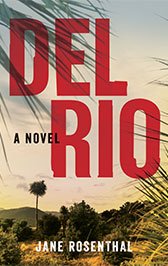We’ve all seen headlines about novels written by AI and blog posts generated in seconds. LLMs are fast, impressive — and everywhere. But does faster mean better in creative writing?
There’s no denying that AI has become a powerful tool for writers. It can clean up sentences and paragraphs, organize entire essays and even help you brainstorm ideas. Using AI as a writing assistant is like having a digital editor in your pocket. But for original content creation — true ideation, problem solving and expressing human emotion — storytelling without AI still wins. Here’s why.
AI needs you, not the other way around
When you rely on AI to generate core ideas or entire paragraphs, you’re outsourcing the very skills that make writing meaningful — and make you a better writer. That’s because LLMs aren’t conscious and can’t “understand” the nuances of human interaction the way a person does. Their knowledge is derived solely from the vast amounts of text data they are trained on.
Whose idea was it?
Human writers use their unique voice, shaped by their life experiences, personality and genuine critical thinking, to create. They make deliberate choices about what to say and how to say it, often breaking rules or adopting a certain style for artistic or communicative effect. AI can mimic stylistic choices but it doesn’t have that same human intentionality or capacity for true artistic creation.
Completing the process
When you write without AI, you’re forced to slow down and think — and figure out what you’re really trying to say. You question your assumptions, solve creative problems, and shape your thoughts starting from scratch. This kind of mental work keeps your thinking sharp and your writing original.
Praise for the writing
Audiences crave authenticity
While AI’s writing may be grammatically perfect, it lacks depth. Writing in your own distinct voice, even with small inconsistencies, is only natural. (As Alexander Pope famously wrote, “to err is human.”) Your readers are more likely to appreciate and connect better to flawed, emotionally complex storytelling without AI.
Who wrote it?
Perhaps the biggest issue with AI-generated content is authorship. Today, much online content is recycled, with AI tools pulling from the same data, the same sources and often using trite phrasing or ideas. The result? An internet that feels more like a giant echo chamber rife with potential copyright issues. If you want to stand out, you need to think differently and fully own your content.
Ok, maybe a little AI
In the end, AI makes the writing process easier. Let it help you clean up a messy draft, check spelling errors or grammar or suggest a sharper headline. But when it comes to brainstorming ideas or telling stories that resonate, AI should be an assistant, not the content creator shaping text.
This is especially true when writing about complex subjects or creating fictional worlds rooted in historical truth. Storytelling without AI might take more time and energy but the result is content that’s more original, more meaningful and more you. And in today’s sea of sameness, that’s exactly what the world needs.
Ultimately, storytelling without AI is about thinking, feeling, and creating with your own skills in an authentic way.
Jane's second novel!

A once-thriving Central Valley farm town, is now filled with run-down Dollar Stores, llanterias, carnicerias, and shabby mini-marts that sell one-way bus tickets straight to Tijuana on the Flecha Amarilla line. It’s a place . . .
